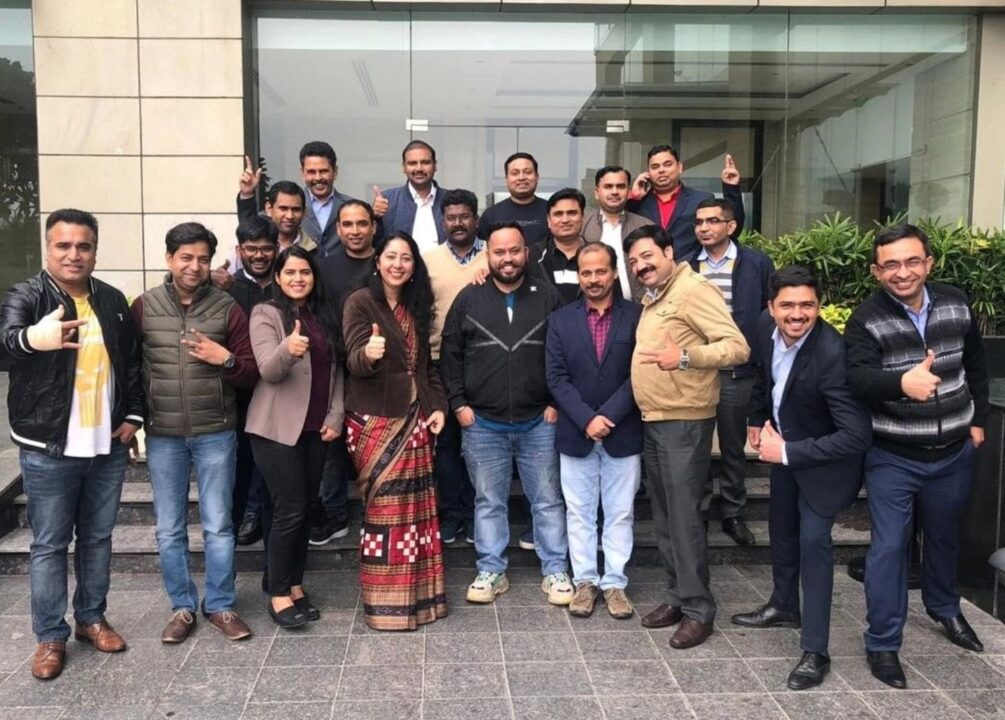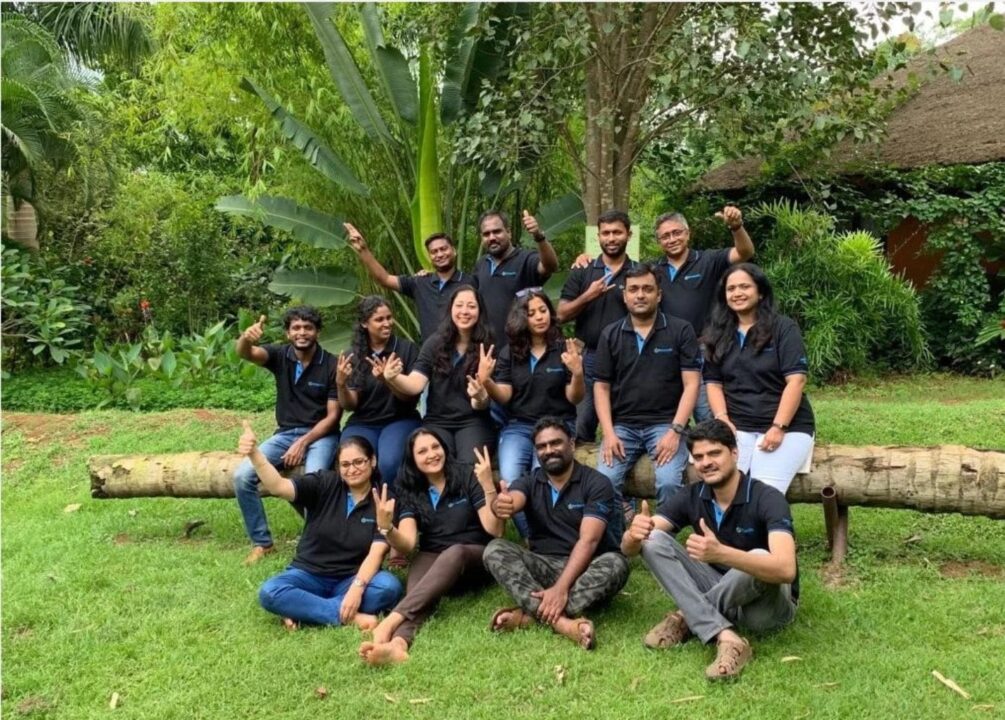Our Mission is to Accelerate Leadership Growth &
Create Conscious Teams That Are Joyfully Successful!
We enable leaders & organisations to make positive and lasting change through our unique, coaching & training solutions.
Our Clients
About US
I facilitate insightful conversations that enable leaders to grow in their roles & careers through self-awareness & self-mastery
Yoshita Swarup Sharma
“What the caterpillar calls the end of the world, the Master calls a butterfly” Yoshita is driven by her deep desire to find a way of life where Evolution & Joy are the only constants. She consciously gave up a very successful marketing career (having worked at Coca-Cola, Dabur India & Ranbaxy over 12 years, last handling a business turnover of about Rs.100cr, running the rapidly growing and highly profitable OTC portfolio of Volini.) She now supports Leaders in their professional and personal growth. She deeply believes that for leaders to be effective, they have to be peaceful and joyful within.
Yoshita is an internationally certified Executive & Career Coach, Facilitator, certified Strengthscope & MBTI Practitioner. She has more than 11 years of experience in facilitating workshops at mid to senior levels of leadership and over 1200 hours of Leadership Coaching and 5000 hours of facilitation. She has done workshops across at least 60 different organisations including the best Indian & International companies from BFSI, FMCG, Manufacturing, IT-ES, Start-ups & NGO sectors and has coached many leaders at CEO/ CXO level across countries.
Yoshita is an ICF Certified PCC Executive Coach, Advanced NLP Practitioner from ABNLP, USA. He is also a Certified Strengthscope & MBTI Practitioner, Inner Child Therapist and an Inner Transformation Coach. She is also a student of Kathak & co-founder of Subah, a community that supports covid bereaved women.

Exceptional Woman of Excellence

Influential Coaching Leaders India

I Coach successful executive leaders to grow to the next level of their career & life with deep insights & absolute clarity.
Ashwni Sharma
Ashwni Sharma is an Internationally Certified Executive Coach & Team Coach (Marshall Goldsmith, USA) and the Founder & MD of A Brighter Life; a company that supports leaders to be more effective and create joyful-success for themselves and their teams. He has an overall experience of 25+ years in the corporate world. The lure for transforming his life led Ashwni to leave a successful corporate career, (spanning almost 2 decades and 3 large scale start-ups in UK, USA & India) to master various transformational self-developmental modalities. Ashwni is a Global Leadership Assessment Practitioner, a Certified Master-NLP Practitioner, a Psycho-Spiritual Therapist, an Inner-Transformation Specialist, a Kriya Yogi and a Meditator for more than 12 years.
Ashwni has worked with successful CXOs, Board Members & Top Leaders across industries, globally, to transform the way they live & lead. Themes worked on include empathetic leadership, building trust with stakeholders, better collaboration, better communication, identifying blind spots, strengthening emotional resilience, listening actively, developing strategic thinking, leader as a coach etc. He combines the Inside-out & Outside-in approach to leadership transformation i.e. combining the power of inner-transformation with outer-leadership actions based on stakeholder feedback.
In his previous avatar, Ashwni was the founding member and head of multimillion-dollar companies – HomeShop18, India and The Jewellery Channel, UK & USA, that grew from zero to $75 Mil – $150 Mil during his tenure. He also worked with Coca-Cola India in various sales & business roles for almost a decade, launching & scaling company operations in India.
Our Best Seller Programs

Executive Coaching For CXO’s
Building Executive Presence
Leadership Retreats
Growing Women Leaders
What Leaders Say
“I’m able to handle situations and people in a far better manner than before. It has been an absolute joy to work with Yoshita. She helped me acknowledge my areas of development in no time and guided me towards addressing them. Her empathy and patience are her assets which immensely helped me in my journey toward self-development. Sessions with her helped me recognize that strengths of mine which when in overdrive were in a way sabotaging my career growth. (It was very counterintuitive – because they were my ‘strengths’!) She helped me understand how to check my certain strengths from going into overdrive. I highly recommend Yoshita to anyone who wants to undergo professional coaching with her.”
“I engaged Ashwni as an Executive Coach to help me re-energize my team and support me navigate my organization through the challenging times. I have found his coaching and methods very insightful and innovative. Most importantly, his coaching has enabled my journey to a different level of leadership- collaboratively working with my peers and giving more space to and enabling the growth of my team. He is very thorough and uses a variety of methods both at the behavioral level and further deeper level that has made my leadership transformation easier and permanent. Thank you, Ashwni for your impactful and empathetic support and help me become the professional that I have the potential of becoming.”
As a leader struggling with conflicting thoughts, I was lucky to have found Ashwni. He is an excellent coach and mentor. He has coached me to become a better leader and, in the process, has helped me find some invaluable insights about myself. He has made me look inwards and search for limitations that tend to slow down my journey towards becoming a better leader. His method involves asking questions and making you reach inside your carefully guarded self for honest answers. Once you know better, he guides you on the journey to transformation. He is very friendly, informal and an absolute pleasure to talk to. In him, I have found a friend, philosopher and guide. I recommend him for anyone looking for his/her true meaning in life.
“It was truly a worthwhile engagement. I discovered blind spots which were coming in way of the effectiveness of my leadership and I was very resistant to it. Here the role played by Yoshita was superb. She made me finally come to terms with these and accept them. I would recommend Yoshita to anyone who is sincerely looking forward to self-improvement. She is an extremely capable coach, who can help others develop through her structured and professional approach, which rests on perseverance and sincerity.”
“I became a more impactful leader and made substantial career progress in 9 months. Within 2 months, with Ashwni’s coaching, I made considerable headway at work, such as communicating more effectively and building trust with my stakeholders. I restructured my team and developed a razor sharp focus on my key deliverables, to increase the team productivity over the next few months. This resulted in enhanced satisfaction levels of my stakeholders. I really benefited being a part of this leadership program”
Yoshita has a unique ability to connect with every participant at the core level and then help facilitate the growth. Yoshita is an extremely capable coach, who can help others develop through her structured and professional approach.
I personally experienced the transformation of all the individuals who went through this program. She was precise, encouraging, thought provoking, got them out of their comfort zones and importantly, held them accountable.”
Glimpses Of Our Work
Blog
The Unseen Side of Leadership: Why Less is Often More
Learn how stepping back as a leader can significantly increase team productivity, improve workplace dynamics, and foster a more creative environment.
Leadership is NOT About Self Confidence!
Unlock true leadership potential with self-confidence, humility, and respect. Become an effective leader who inspires and empowers others
Unleashing Potential: The Leadership Development Superpower You’ve Been Overlooking
Unleashing Potential: The Leadership Development Superpower You've Been Overlooking Ashwni...
Maximize Your Leadership Career Growth: 5 Situations Where a Career Coach Can Make a Difference
Maximize Your Leadership Career Growth: 5 Situations Where a Career Coach Can Make a Difference...
Will My Speaking Up Work Against Me?
Will My Speaking Up Work Against Me?- Yoshita Swarup SharmaI was startled when a senior...
Heres Why Gratitude Leads to Leadership Success
Here’s Why Gratitude Leads to Leadership Success- Yoshita Swarup SharmaI recently came across a...





























